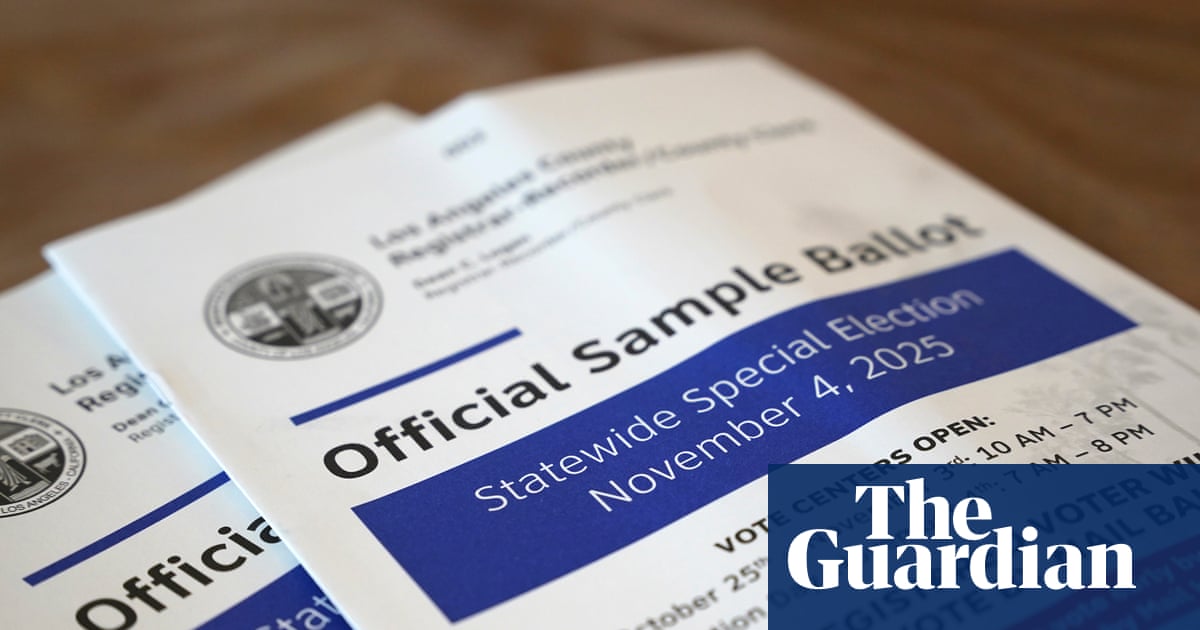Daylight savings time is not just a hassle – it can also be bad for your health.
The twice-yearly “spring forward, fall back” routine rattles our bodies’ daily cycles, known as circadian rhythms, with potentially harmful consequences. And a new study supports what many sleep experts have long argued: the solution is getting rid of daylight savings for good.
That will not be easy. While there is plenty of support for eliminating the time change itself, Donald Trump and some in Congress have called for the opposite: making daylight savings permanent. And it may prove unpopular with those of us who enjoy an extra hour of light on a summer’s evening.
Researchers at Stanford University found that keeping our clocks on standard time year round, instead of just in the autumn and winter (as in most US states as well as the UK), would reduce the prevalence of obesity and strokes. The study, published in the Proceedings of the National Academy of Sciences, stands apart from much other research thanks to its breadth. Instead of simply looking at what happens when the clocks change, the researchers compared three scenarios: permanent standard time, permanent daylight savings time, and the current switching system, which applies in most US states.
Dr Jamie Zeitzer, a professor of psychiatry and behavioral sciences, and Lara Weed, a PhD candidate in bioengineering, modeled sunlight exposure across every county in the 48 contiguous states, and compared that information with federal health data. The goal, Zeitzer says, was to use an existing mathematical model to discover the “circadian burden” of the three daylight scenarios – in other words, “how much stress are we putting on the circadian system?” That stress is associated with a variety of disorders, including obesity and stroke. The result suggested that, at least in circadian terms, permanent standard time is the least burdensome on our health.
“This goes along with what we’ve been saying since about 2019,” says Dr Karin Johnson, a neurology professor at the University of Massachusetts Chan school of medicine and a member of the American Academy of Sleep Medicine’s advocacy committee. Johnson testified in favor of permanent standard time in front of a US Senate committee in April, telling lawmakers it would create “a more natural alignment between our social schedules and the sun’s cycle every day of the year”.
“Our body rhythms basically get set by the sun,” she says. But because our natural cycle is slightly longer than 24 hours, “we need to get cues every day to stay on track. Otherwise, our rhythms get delayed.” That results in problems ranging from trouble sleeping and waking up to digestive issues. “The more we can stay aligned with the sun time,” she says, “the healthier it is for our body, the better our brain functions, the better our sleep.” The American Academy of Sleep Medicine (AASM), American Academy of Neurology and the health and safety-focused non-profit National Safety Council agree.
But that argument runs counter to a repeated effort in Congress to pass the Sunshine Protection Act, which would change the system to make daylight savings permanent. Unlike virtually everything else Congress grapples with, it does not seem to be a highly partisan matter; Ted Cruz, for instance, has heard “serious arguments on both sides” and even Trump has acknowledged it’s a “50-50 issue”.
Permanent daylight savings may sound appealing, since skipping an hour in the spring results in long sunlit evenings, but Johnson says that view is misleading. “It’s really summer people are loving but they connect it in their mind to daylight savings time,” she says. Even under standard time, she notes, summer nights would be long. Permanent daylight savings, on the other hand, would cost us essential light during winter mornings – though of course, late-rising Americans may prefer to have that light in the evening.
A Gallup poll this year found declining support for daylight savings time overall, with 48% of Americans supporting permanent standard time, 24% backing permanent daylight savings, and 19% wanting to stick with the current system. In 2023, however, a YouGov poll found that among those who wanted to stop switching the clocks, 50% supported permanent daylight savings and 31% supported permanent standard time.
As for Zeitzer, while his latest research argues in favor of permanent standard time, he cautions that circadian rhythms are just a “piece of the puzzle”.“Do people exercise more if there’s more light in the morning? Are fewer kids biking to school because it’s too dark in the morning? Are there better economic outputs that are going to help economically marginalized individuals?” he asks. “There are lots of things that could happen if you move where that hour of light is happening, and frankly, it might be very different in different parts of the country.”
Advocates of permanent daylight savings have suggested it could, for instance, help fight seasonal depression, save energy and reduce vehicle crashes. (And while the AASM ranks permanent daylight savings as the worst of the three options, Zeitzer’s study asserts it’s better than the constant switching.)
But to Johnson, the answer is clear. “It’s a long, slow process but I think getting the word out with studies like this can hopefully shift that needle” toward permanent standard time, she says. “Because people are desperate to end the time change.”

 German (DE)
German (DE)  English (US)
English (US)  Spanish (ES)
Spanish (ES)  French (FR)
French (FR)  Hindi (IN)
Hindi (IN)  Italian (IT)
Italian (IT)  Russian (RU)
Russian (RU)  4 weeks ago
4 weeks ago
























Comments